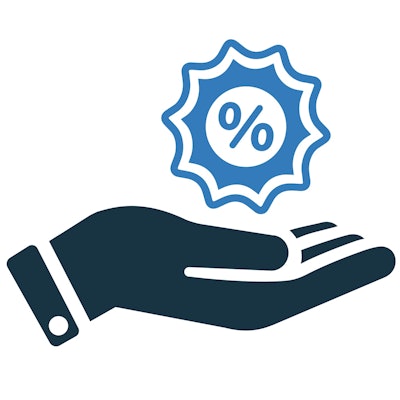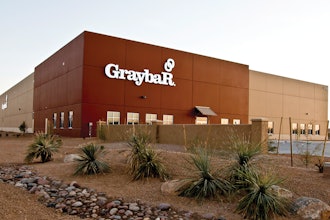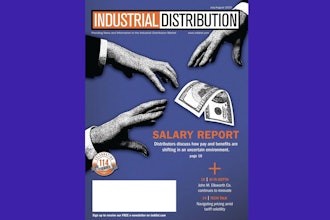
A recent article in Inc. Magazine suggested that “discounting is for dummies.” The article even mentions Warren Buffett’s philosophy on pricing. Buffett is typically a hands-off executive, but his company is heavily involved in pricing. Buffett even suggests when facing tough competitive pressure, consider raising the price.
You may be thinking, “That’s easy for Buffett to say. He’s not dealing with the pressures I’m experiencing.” But that is the very reason why Buffett should control pricing. When you are too close to a deal, you are willing to do anything to close that deal. You feel immense pressure to make it happen. As you experience more pressure, you are more likely to discount—especially in tough times. Creating a little distance between you and the deal provides a more objective view.

Before you consider a discount, consider the long-term impact. Here are a few considerations as you decide:
Lowering your price sets a discounting precedent. Today’s exception is tomorrow’s expectation. Discounting establishes a new pricing benchmark having serious implications for future profits. Conversely, holding the line on your price also sets a precedent. If you hold the line once, then twice, the buyer is less likely to ask a third time. It’s like a child asking for candy, refusing their request discourages them from continuous badgering (most of the time).
Discounting devalues your solution. In the absence of any other information, price is the greatest indicator of quality and performance. We like to simplify decision making. Our immediate thought is that if something costs more, it’s worth more. By discounting, you are effectively saying your solution is worth less. The goal is to increase the perceived value of your solution, not lower it.
Rather than discounting your price, increase your value. When customers ask for a discount, respond by saying, “Mr. Customer it seems there is a difference between the value of our solution and the price you are willing to pay. How can we add more value to this solution to make it seem more equitable?” This question addresses the number-one reason why buyers give price objections—a perceived lack of fairness.
Customers make you feel like you need to sell it more than they need to buy it. Buyers do this to gain a negotiating edge. Our research shows that sellers discount when they feel pressured. Seventy-five percent of sellers will cave when buyers ask for a discount. Tough times are the worst time to discount. Consider the negative impact on your company and your level of service. It’s critical to maintain your profitability through tough times.
Balance your fear of losing the business with the buyer’s fear of the unknown. Although you risk losing the business, customers also incur risk when they switch providers. Customers make you feel the pressure to discount, but customers also feel the pressure to buy. As buyers face uncertainty, they look for stability. They find stability in the status quo. During tough times your customers are more likely to stick with what they know versus what they don’t know. A price objection doesn’t mean the customer is considering a change.
What if you have a negative attitude about your price? My company surveyed salespeople and asked about their personal buying habits. I asked salespeople if they “ask” for discounts when making buying decisions. It turns out salespeople who ask for a discount are more likely to give a discount. If you’re a price shopper yourself, naturally you’ll be a price seller. Embrace a more positive attitude about price and what your buyers receive when they partner with you.
Not raising your price to cover inflation is the same as a discount. During inflationary times, it’s imperative to cover your costs. Eating inflationary costs for your customer will leave you starving. Stop taking it on the chin. During this inflationary period, every profit dollar counts. As you cover your inflation costs, remind the customer of all the value you deliver. When customers are aware of your value, price is less of an issue.
Think twice before you discount your solution. Consider the precedent you are setting by caving. Rather than lowering the price, increase the total value of your solution. During these inflationary times, most companies are already raising prices. In that sense, it’s okay to follow the crowd. Be the market leader willing to protect margin.
 Paul Reilly
Paul Reilly
Paul Reilly is a speaker, sales trainer, author of Selling Through Tough Times (McGraw-Hill, October 2021), coauthor of Value-Added Selling, fourth edition (McGraw-Hill, 2018), and host of The Q and A Sales Podcast. For additional information on Paul’s keynote presentations and seminars, call 636-778-0175 or email [email protected]. Visit www.ToughTimer.com and complete the 30-Day Tough-Timer Challenge.























